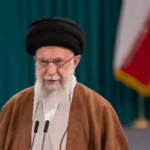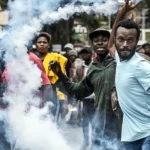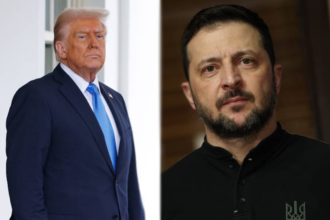In a heated press briefing, Defence Secretary Pete Hegseth has tried to explain why the US has struck Iran in the recent past. The key aims were to prove the success of the mission and to make sure that the media does not doubt his intentions because someone speculated on an early intelligence report that the involved operation did not have much of an effect. Hegseth pointed out that the airstrikes were accurate, potent, and strategically important.
- How did the Public Opinion feature in the Address by Hegseth?
- What did the Political Atmosphere of the Time Have to Say About the Strikes?
- Did the Strikes Accomplish the Means of Their Strategic Objectives?
- What are the roles of the media in this debate?
- What are the Larger US-Iran Relations Implications?
- Is this one of the Trump Foreign Policy Wins?
- Final thoughts: Are US strikes on Iran a Sustainable Narrative?
He cited supporting facts made by the Director of the CIA, John Ratcliffe, and Israeli intelligence, and stated that several Iranian nuclear facilities were badly damaged. These assertions were supported by General Dan Caine, who explained the use of high-tech bunker buster bombs. This was aimed at reminding the world that these measures were a major setback as far as the nuclear development of Iran is concerned.
How did the Public Opinion feature in the Address by Hegseth?
A significant segment of Hegseth’s speech was meant to shape the opinion of people. As polls indicated that the feeling about the US attacks on Iran is divided, with the Democrats and the independent leaning against the action, the Pentagon appeared, then, keen to change the narrative. Hegseth attacked the media as the coverage, as he put it, was biased and unpatriotic. He contended that their cynicism was not an indication of the courage of those people in the military who participated in the operation.
Moreover, the remarks by Hegseth were done in such a way that they appealed to President Trump, who has been complaining about the bad publicity. The political impact of the rhetorical campaign is demonstrated by the words of Trump, who expressed publicly his gratitude for the briefing. Here is the link to our article on Iran-US Escalation
What did the Political Atmosphere of the Time Have to Say About the Strikes?
Air force messaging has been motivated by political expediency in the Pentagon. As Trump has lost his popularity and the next elections are coming, the US administration is in urgent need of foreign policy success. The US attacks on Iran might do the trick, but only provided that they are seen as successful by most people.
Thus, it is important to influence the masses when it comes to forming an opinion. To rely upon “common sense” to give judgment on the effects of the strikes, Hegseth reminded the Americans to take this approach. The magnitude and accuracy of the operation were, he held, a sure indication of a large success, whether or not preliminary estimations were made.
Did the Strikes Accomplish the Means of Their Strategic Objectives?
The complete of the US strike against Iran is yet to be evaluated. The damages to nuclear infrastructure are said to be serious by the Pentagon, but the international agencies have not been able to access the truth yet, as far as they are concerned. Iran has, on the other hand, nd played down the strikes and made pictures of non-effectiveness.
This lack of connection has created the contest of stories. The Supreme Leader of Iran asserted that the attacks achieved nothing substantial and that he will counter-attack in case he is provoked again. The US, in the meantime insists that the enrichment facilities were left inoperable. Here is the link to our article on Israel-Iran Tensions
What are the roles of the media in this debate?
To express his critical beliefs, Hegseth addressed the media directly, blaming the media for political blindness rather than patriotism. He has put media skepticism as an assault on the military instead of a valid question on the effectiveness of the US attacks on Iran.
The strategy tries to isolate the administration on one side and the press on the other, er as if not feeling the pulse of the nation. It is a calculated risk of communication that tries to mobilize supporters in the political base of Trump, and it tries to dodge negative comments.
What are the Larger US-Iran Relations Implications?
The attacks have only worsened the relations between the US and Iran. Iran has hit back, stating that their nuclear program is still intact. It has also enacted laws to end cooperation with international nuclear inspectors, creating tensions in the region.
Moreover, the absence of diplomatic relations between the nations decreases the risks of de-escalation. In the absence of active negotiations, any military action turns out to be a flash point. Therefore, a so-called successful strike may come with some unforeseen effects.
Is this one of the Trump Foreign Policy Wins?
The Trump administration wishes that the US attacks on Iran could be a landmark in foreign policy. This is one of those moments where decisive leadership is evident since earlier attempts to resolve conflicts in Ukraine and Gaza did not yield much.
Nevertheless, these wins are short-lived until the general perception is good. The plan currently being practiced is to keep the ball in motion via media briefings, partial release of intelligence, and political communications. Whether the work will yield long-term popular support remains to be seen.
Final thoughts: Are US strikes on Iran a Sustainable Narrative?
The Pentagon’s forceful communication underscores the intense nature of the US strikes on Iran. While Hegseth’s briefing was designed to energize domestic support, skepticism lingers both among global observers and the American public. For these actions to be deemed a real success, they must produce both tactical outcomes and political gains. At this stage, US strikes on Iran have escalated the conflict significantly. Military experts are not the only ones evaluating the situation—international actors are also watching closely. Ultimately, what matters most is not just battlefield victories but how the US strikes on Iran are perceived worldwide.








